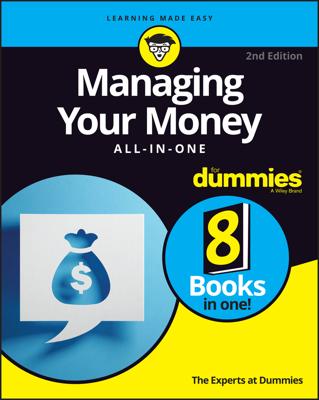If you're unsure about opening a bank account, consider this: Having a checking account at a bank means you don't need to pay a fee to cash your paycheck, and you can access your money from any ATM machine. To open a checking account at a bank, you need to choose a bank, go there in person, and then talk to an employee who will create your account. Opening a bank account is a fairly simple process, but knowing what to expect will make it even easier.
Consider location and services when choosing a bank
Banks know that when shopping for a bank, people tend to choose the closest one. But closest to what? Where you live, work, or go to school? If you travel a great deal — around town or around the world — consider a bank with lots of branches (That's why there seems to be a bank on every corner in some neighborhoods!). On the other hand, location may not be that important to you; after you open your account, using online banking and direct deposit may make bank visits rare.
The services that a bank offers is an important factor to weigh when choosing a bank. Do you only want to protect some extra cash that you don't want spend? In that case, seek a the bank that will give you the highest annual percentage rate (APR) of interest. On the other hand, if you're not going to keep much of a balance but will be using the bank mostly to pay bills, then look for a bank that charges the lowest fees for its services.
Whether you do your searching online or stop into a few banks to find out what it takes to open an account, here are some questions to consider:
-
What is the bank's minimum balance or deposit required to get free checking?
-
If your balance dips below the minimum, what are the per-check and per-deposit fees?
-
How many checks can you write every month without incurring a fee?
-
What interest does the bank pay, if any? If there's an introductory rate, how long before the rate changes?
-
Does the account come with an ATM/debit card, and what charges are there for using it? At your bank? At other banks?
-
If you bounce a check (have insufficient funds in your account to cover a check that you've written) what is the fee? (Careful, these fees are usually quite high.) Is overdraft protection available? What is the fee if someone gives you a check that bounces?
-
Is your money insured by the FDIC (Federal Deposit Insurance Corporation)?
-
How long does it usually take for a check you deposit to clear, meaning the money is available for you to spend?
The process of opening an bank account
These days, you don't fill out a lot of paperwork to open a bank account. Banks do everything electronically, so instead, you'll talk to an employee who will feed all your information into a computer.
Be ready to have the following to open a bank account:
-
Money. Most banks have a minimum amount of money required to open an account. Find out what that minimum is in advance so that you bring at least that minimum. It can be in cash or check form.
-
Identification. You'll need ID with your current mailing address on it, such as a driver's license or passport. Even if you choose paperless banking — meaning that you won't get a monthly statement in the mail but will see all your information online — the bank will still need to mail your ATM card to you.
-
Social Security number. Banks are required by law to have this information on file.
You'll be asked to choose a PIN (personal identification number) when using your ATM card. Normally, a longer PIN is safer, but if you're going to do any traveling abroad, be aware that many foreign banks will accept only a four-digit PIN.
If you've ever had a bank account before, the bank will be looking into that — and if you've had a problem, they may not accept you.
Banks charge you for checks. You can order checks online (from Wal-Mart, for example) for less money than what the banks charge, and you'll get a wider selection of colors and designs to choose from.

